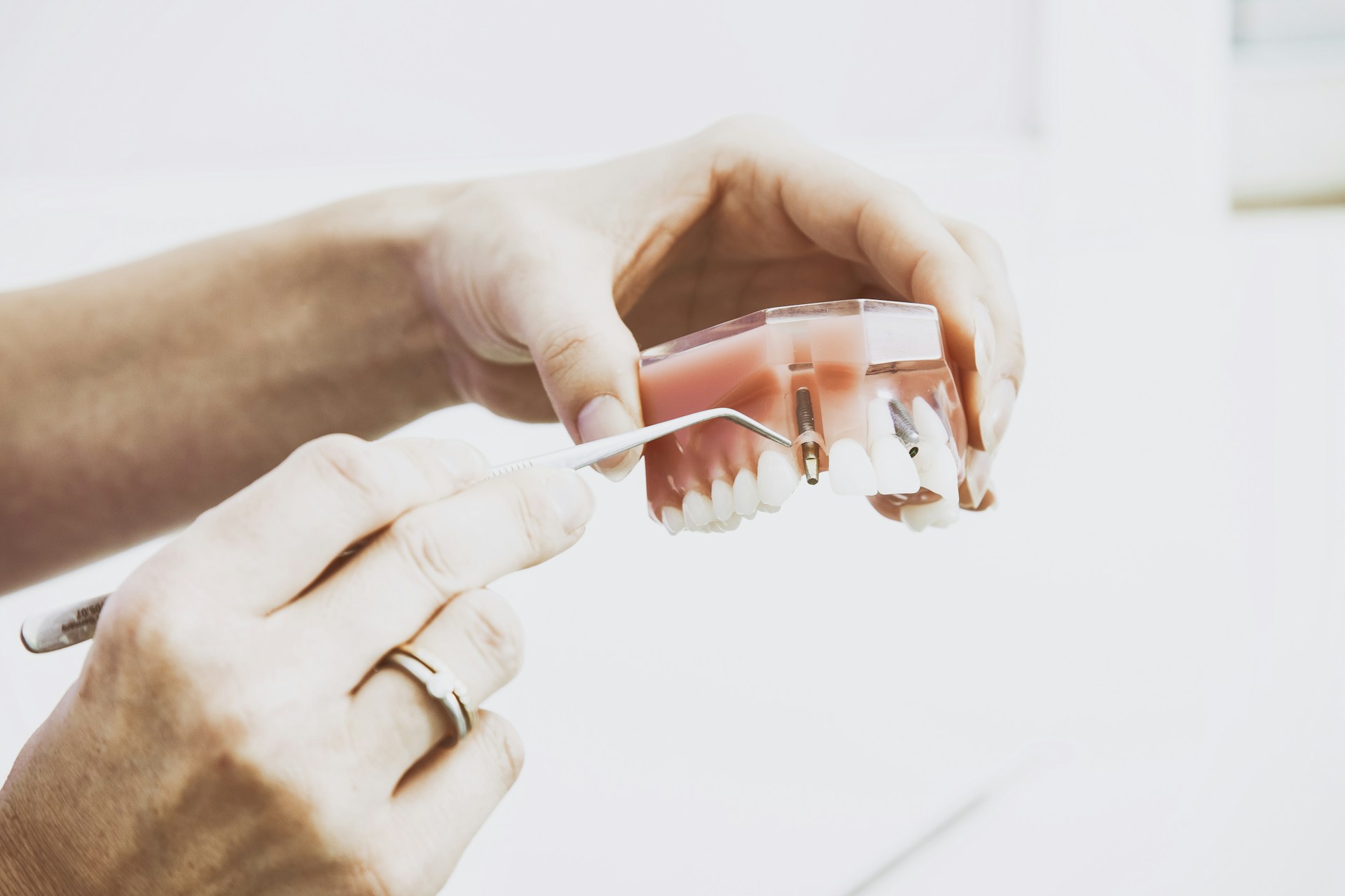SMILE- It costs nothing !!!
How To Stop Throbbing Pain After Root Canal
Discover why throbbing pain may continue after a root canal procedure and learn effective coping strategies to find relief. Explore expert advice and tips to alleviate persistent pain.
3/26/20245 min read


Tooth Pain After Root Canal
One common concern that many people have when it comes to root canal treatment is whether or not it is painful.
The truth is that while the procedure itself may cause some discomfort, modern techniques and advancements in dentistry have made it significantly less painful than it used to be.
During a root canal treatment, the dentist will remove the infected pulp from the tooth, clean the area, and then seal it to prevent further infection.
This process is done under local anesthesia, which means that you should not feel any pain during the procedure itself.
The dentist will ensure that the area is completely numb before starting the treatment, so you can relax and be comfortable throughout the procedure.
However, it is normal to experience some soreness or discomfort in the days following the treatment.
This can be managed with over-the-counter pain medications such as ibuprofen or acetaminophen. Applying an ice pack to the affected area can also help reduce any swelling or inflammation.
The level of pain or discomfort experienced after a root canal treatment can vary from person to person.
Some individuals may have minimal discomfort, while others may experience more significant pain.
It is important to keep in mind that any discomfort should subside within a few days as the tooth heals, probably a week.
In rare cases, complications such as an infection or a cracked tooth may cause prolonged pain after a root canal treatment.
If you experience severe or persistent pain, it is important to contact your dentist for further evaluation and treatment
RELATED : All about Root Canal Procedure
What Causes Pain After a Root Canal Treatment?
After a root canal treatment, pain can occur due to various factors, including:
Inflammation: The root canal procedure involves cleaning out infected or damaged tissue from inside the tooth. This process can lead to inflammation of the surrounding tissues, which may cause discomfort or soreness.
2.Nerve Irritation: Although the nerve inside the tooth is removed during the root canal, there may still be some residual nerve tissue or irritation in the surrounding nerves. This can lead to sensations of pain or discomfort.
3.Tissue Trauma: The manipulation of tissues during the root canal procedure can cause trauma to the surrounding gums and tissues, leading to soreness or tenderness in the days following treatment.
4.Residual Infection: In some cases, the root canal procedure may not completely eliminate the infection from the tooth, leading to persistent or recurrent pain. This could occur if the tooth has complex anatomy or if the infection is located in hard-to-reach areas.
5.Pre-existing Conditions: Patients with pre-existing dental conditions, such as gum disease or cracked teeth, may experience prolonged or increased pain following a root canal procedure.
It's important to note that some degree of discomfort after a root canal treatment is normal and expected as part of the healing process.
However, if the pain is severe, persistent, or accompanied by other symptoms such as swelling or fever, it's essential to consult with your dentist to rule out any complications and ensure proper treatment.
RELATED : How to prevent caries ?
Several factors can influence the duration of pain after a root canal treatment:
Severity of Infection:
The severity of the infection prior to the root canal procedure can impact the duration of post-treatment pain
In cases of severe infection or abscess, it may take longer for the surrounding tissues to heal, leading to prolonged discomfort.
2.Complexity of the Procedure:
The complexity of the root canal procedure itself can affect how long pain persists.
Teeth with complex root structures or multiple canals may require more extensive treatment, resulting in increased post-treatment discomfort
3.Individual Pain Tolerance:
Pain tolerance varies among individuals, and some patients may experience pain more acutely or for a longer duration than others.
Factors such as anxiety, stress, and overall health can also influence how a person perceives and experiences pain after a root canal.
4.Presence of Additional Dental Issues:
Other dental issues, such as gum disease, cracked teeth, or temporomandibular joint (TMJ) disorders, can exacerbate post-root canal pain and prolong recovery time.
Addressing these underlying issues may be necessary to alleviate discomfort and promote healing.
5.Quality of Treatment:
The quality of the root canal treatment itself can impact pain duration.
A well- executed procedure that effectively removes infected tissue and seals the tooth can lead to faster healing and less post-treatment pain.
Conversely, incomplete treatment or failure to properly seal the tooth can result in persistent discomfort.
6.Patient Compliance with Post-Treatment Care:
Following post-treatment care instructions provided by the dentist is crucial for promoting healing and reducing pain after a root canal.
Failure to follow recommendations such as taking prescribed medications, avoiding certain foods, or practicing good oral hygiene can prolong discomfort and delay recovery.
Overall, while some degree of discomfort is normal after a root canal, persistent or severe pain should be evaluated by a dentist to rule out complications and ensure proper treatment.
RELATED : Foods to eat for better oral health
Tips for Managing throbbing pain After a Root Canal Treatment
While some discomfort after a root canal treatment is normal, there are several steps you can take to help manage the pain and promote healing:
1. Take Over-the-Counter Pain Medication:
Non-steroidal anti-inflammatory drugs (NSAIDs), such as ibuprofen, can help reduce pain and inflammation after a root canal treatment. Follow the dosage instructions provided on the packaging or consult with your dentist for specific recommendations.
2. Apply Cold Compresses:
Applying a cold compress to the outside of your cheek near the treated tooth can help reduce swelling and relieve pain. Wrap an ice pack or a bag of frozen vegetables in a thin cloth and hold it against your cheek for 10-15 minutes at a time.
3. Avoid Hard or Chewy Foods:
To prevent further irritation or discomfort, avoid chewing on hard or chewy foods immediately after a root canal treatment. Stick to softer foods that require less effort to chew, such as soups, yogurt, or mashed potatoes.
4. Practice Good Oral Hygiene:
Proper oral hygiene is crucial for the healing process after a root canal treatment. Be sure to brush your teeth gently twice a day and floss daily to keep the area clean and free from bacteria.
5. Follow Your Dentist's Instructions:
Your dentist will provide you with specific instructions on how to care for your tooth after a root canal treatment. It is important to follow these instructions closely to ensure proper healing and minimize any discomfort.
Additionally, it is important to avoid smoking or consuming alcohol during the recovery period, as these can delay the healing process and increase the risk of complications.
If you experience persistent or worsening pain, swelling, or any other concerning symptoms, it is crucial to contact your dentist immediately.
These could be signs of an infection or other complications that require prompt attention.
Remember, your dentist is your best resource for guidance and support during the recovery process.
They have the knowledge and experience to address any concerns or issues that may arise, so do not hesitate to reach out to them for assistance.



Contact Smiles
drdeepi15@gmail.com
Dr. Deepika B.D.S
© 2025 SmileWide Dental. All Rights Reserved.
Have doubts ..?
